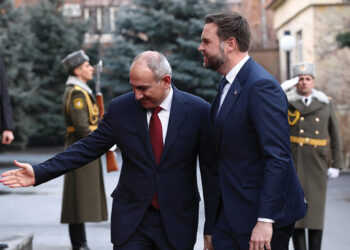In a world where storytelling shapes perceptions and dismantles prejudices, the partnership between Chai Khana and MAC Georgia emerges as a beacon of inclusivity. Their ambitious film project, spotlighting the lives and experiences of people with disabilities, is rewriting the narrative surrounding disability in Georgia. With 38 films crafted through a competitive process, and 15 selected for online publication, this initiative is both an artistic triumph and a social revolution.
As the competition edges toward its climax, with the three winning films set to be announced in December 2024, these short films are already resonating deeply with audiences, offering intimate and powerful perspectives on disability.
In Georgian society, as in many others, the discourse on disability is fraught with stereotypes. People with disabilities are often cast either as victims requiring charity or as “superhuman” individuals overcoming insurmountable odds. This dichotomy leaves little space for authentic, nuanced representations.
Enter Chai Khana and MAC Georgia. By combining Chai Khana’s expertise in multimedia storytelling and MAC Georgia’s grassroots advocacy for vulnerable communities, the project amplifies voices that have historically been sidelined. The initiative’s premise is revolutionary: to position people with disabilities as creators, protagonists, and subjects of stories that reflect their full humanity—not just their struggles.
Through the universal medium of film, the project speaks to a society at a crossroads, nudging it toward empathy, understanding, and change.
‘Capable’—A Satirical Masterpiece Turning the Lens on Society
Grigol Zhordania’s Capable is a meta-narrative unlike any other. Set in an alternate reality, it flips societal norms by depicting people with disabilities creating a short film about a “capable” character. This reversal is both humorous and piercing, exposing how mainstream society often exploits marginalized narratives for personal gain.
Zhordania’s work transcends the traditional boundaries of disability-focused storytelling, asking a fundamental question: Who has the right to tell these stories? In critiquing the commodification of disability, Capable invites viewers to reconsider their complicity in perpetuating harmful narratives.
‘The Language of Birds’—A Poetic Exploration of Isolation and Hope
Salome Sagharadze’s The Language of Birds presents a poignant tale of a family struggling to connect. Mindia, a boy who understands birds but refuses to speak to humans, becomes a metaphor for the invisible walls that disability can create within relationships.
Sagharadze’s cinematic approach—layered with symbolism and lyrical visuals—mirrors the family’s internal chaos. The turning point, when nature intervenes to offer solace, transforms the narrative into one of reconciliation. The film is a gentle reminder that healing often requires looking beyond societal norms and embracing alternative forms of communication.
‘Stage of Mind’—The Theater as a Sanctuary of Belonging
For 26-year-old Nika, the stage is more than a platform; it’s a lifeline. Directed by Bakar Cherkezishvili and Hanna Hovitie, Stage of Mind captures the duality of Nika’s world: the acceptance and freedom he experiences in the inclusive theater ‘Azdaki’s Garden’ versus the stigma he continues to face outside it.
This film is as much about art as it is about society. It portrays the transformative power of inclusive spaces, where creativity becomes a tool for healing. As Nika dreams of professional success, his journey underscores the broader societal imperative to dismantle barriers and foster inclusivity.
‘Tereza’—A Portrait of Quiet Resilience
Gvantsa Mamatsashvili’s Tereza chronicles the daily life of a young woman with hearing and vision loss as she transitions from her hometown of Poti to the bustling capital of Tbilisi. Far from sensationalizing her experiences, the film finds beauty in her resilience and determination.
Tereza is a deeply personal story, yet its implications are universal. It challenges viewers to rethink independence—not as an absence of challenges, but as the courage to face them head-on. Mamatsashvili’s unobtrusive style allows Tereza’s strength to shine, offering an inspiring narrative of empowerment.
Expanding the Reach of Inclusive Storytelling
One of the most commendable aspects of this project is its commitment to accessibility. By publishing the films online for free, Chai Khana and MAC Georgia ensure that these narratives reach a wide and more diverse audience. This digital-first approach aligns with the broader global trend of democratizing media, making these powerful stories accessible to educators, policymakers, and the general public alike. The decision to announce the three winning films in December 2024 adds an element of anticipation, further drawing attention to the project and its creators.
The success of this initiative rests on the shoulders of its collaborators. Chai Khana, an alternative multimedia platform dedicated to amplifying underrepresented voices in the South Caucasus, brings storytelling expertise and a commitment to challenging the status quo. Meanwhile, MAC Georgia’s decades of advocacy for vulnerable communities provide the ethical backbone of the project, ensuring that the films remain authentic and respectful of the subjects they depict. This partnership exemplifies how art and advocacy can intersect to create meaningful social change.
Beyond the Screen
This project is not just about films; it’s about reshaping cultural narratives. The stories told through these short films serve as a mirror to society, reflecting both its shortcomings and its potential for growth. They challenge viewers to confront their own biases and consider how they might contribute to a more inclusive world.
Moreover, these films have the potential to spark conversations that extend beyond Georgia, offering a blueprint for other countries grappling with similar issues around disability and representation.
The Chai Khana and MAC Georgia film project is a landmark achievement in both art and advocacy. By giving people with disabilities a platform to tell their stories, it not only humanizes their experiences but also elevates them as agents of change.
As the competition nears its conclusion, the films already published offer a glimpse into the transformative power of inclusive storytelling. These narratives are more than just stories—they are acts of resistance against stigma, ignorance, and indifference.
In a world desperately in need of empathy and understanding, this project serves as a reminder of what is possible when art meets advocacy. Through these films, we are invited to see disability not as a limitation, but as a lens through which to view the boundless possibilities of human resilience and creativity.
By Ivan Nechaev














